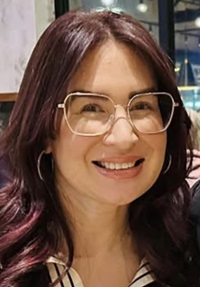By Jennifer Litchfield, DNP, RN
Introduction
Have you considered advancing your nursing career? There are numerous opportunities for Registered Nurses (RNs) to pursue advanced degrees or obtain additional certifications to enhance their professional growth and expertise. Below are some options to assist you in your nursing journey.
Step-by-Step Nursing Career Progression
1. Registered Nurse (RN)
- Requirements:
- Complete a nursing education program (Associate Degree in Nursing (ADN) or Bachelor of Science in Nursing (BSN)).
- Pass the NCLEX-RN (National Council Licensure Examination for Registered Nurses).
- Obtain state licensure to practice as an RN.
- Timeline: Typically, 2-4 years, depending on educational path.
2. Bachelor of Science in Nursing (BSN)
- If you already have an ADN:
- Enroll in an RN-to-BSN program (1-2 years).
- If pursuing your first nursing degree:
- Direct entry into a BSN program typically takes 4 years.
- Prerequisites: Completion of core nursing courses, clinical hours, and general education classes.
- Timeline: 1-2 years (RN-to-BSN) or 4 years (BSN program).
3. Master of Science in Nursing (MSN)
- Admission Requirements:
- Hold a BSN from an accredited program.
- Meet program prerequisites (e.g., minimum GPA, clinical experience).
- Specialties: Nurse Practitioner (NP), Nurse Educator, Nurse Administrator, Clinical Nurse Leader, or Nurse Anesthetist.
- Program length: 2-3 years (full-time or part-time options available).
- Certification: Some specialties require certification exams upon completion.
4. Doctor of Nursing Practice (DNP)
- Admission Requirements:
- Hold an MSN or higher degree in nursing.
- Some programs allow direct entry from a BSN (longer program).
- Focus: Advanced clinical practice, leadership, and evidence-based healthcare improvements.
- Timeline: 3-4 years post-MSN, or 4-5 years from BSN.
- Outcome: Graduates take on leadership roles, influence healthcare policy, or teach at the university level.
5. Doctor of Philosophy in Nursing (PhD)
- Admission Requirements:
- Hold an MSN or related Master’s degree. Some programs allow direct entry after a BSN.
- Submit a research proposal or personal statement.
- Focus: Research and academic scholarship.
- Timeline: 3-5 years post-MSN.
- Outcome: Graduates pursue careers in academia, research, or high-level policy development.
Summary of Pathways
- RN → BSN: 2-4 years (1-2 years for RN-to-BSN).
- BSN → MSN: 2-3 years.
- MSN → DNP: 3-4 years.
- DNP → PhD: 3-5 years.
- Total time from ADN to PhD: 12-16 years (depending on enrollment choices).
Pursuing Higher Education in Nursing
- BSN: Expands career opportunities and prepares RNs for leadership roles.
- MSN: Enables specialization (e.g., NP, Nurse Educator, CRNA, Nurse Administrator).
- Doctoral Degrees (DNP/PhD): Prepares nurses for leadership, research, and policy influence.
Specializing in a Nursing Field
Specializations can enhance expertise and earning potential. Some require additional certifications, such as:
- Critical Care (CCRN)
- Oncology Nursing (OCN)
- Emergency Nursing (CEN)
Leadership roles such as charge nurse, nurse manager, or director of nursing often require additional training or a Master’s in Healthcare Administration (MHA).
Career Pathways for Nurses
- Registered Nurse (RN): Work in hospitals, clinics, schools, nursing homes.
- Advanced Practice Registered Nurses (APRNs):
- Nurse Practitioner (NP)
- Clinical Nurse Specialist (CNS)
- Nurse Anesthetist (CRNA)
- Nurse Midwife (CNM)
- Nurse Educator: Academic roles, teaching future nurses.
- Nurse Administrator: Leadership in healthcare teams.
- Public Health Nurse: Community health and education.
- Travel Nurse: Short-term contracts in different locations.
- Nursing Researcher: Conducts studies to improve healthcare.
Impact of Clinical and Externship Experiences
1. Bridging Theory and Practice
Clinical experiences allow nurses to apply theoretical knowledge to real-world patient care, improving decision-making and clinical skills.
2. Development of Competency
Hands-on learning ensures the mastery of critical skills required for higher-level nursing roles.
3. Professional Identity and Confidence
Practical experience fosters compassionate care and leadership readiness.
4. Networking and Mentorship
Clinical placements help nurses build relationships with professionals and mentors who can aid in career advancement.
5. Preparation for Certification
Clinical hours are often required for certification exams, ensuring nurses are well-prepared for specialized roles.
Elevating Nursing Through Education and Leadership
Advancing in the nursing profession requires commitment to continued education, specialization, and clinical experience.
It’s not just about earning degrees—it’s about embracing lifelong learning, developing expertise, and stepping into roles that shape the future of healthcare. Whether your goal is to specialize in patient care, lead healthcare teams, educate the next generation of nurses, or contribute to groundbreaking research, the journey from RN to doctorate offers countless opportunities for professional growth and meaningful impact. Each step builds expertise and opens doors to greater career opportunities, leadership roles, and contributions to nursing research and policy.
Each step forward strengthens the nursing profession and improves patient outcomes, ensuring that nurses remain at the forefront of innovation and compassionate care. Wherever you are on your path, keep striving, keep learning, and keep making a difference.
About Jennifer Litchfield
Jennifer Litchfield, DNP, RN is a dedicated nurse educator, manager, leader, published scholar, columnist, registered nurse, and entrepreneur. With over 18 years of clinical nursing experience, 11+ years in higher education, and three years in secondary education, she brings a wealth of knowledge and expertise to the field.
As a former Dean at Becker College, she played a pivotal role in successfully removing the nursing program from ACEN conditions status through collaborative leadership and data-driven decision-making. A proven change agent, she works closely with teams to set measurable goals and achieve meaningful outcomes.
She is a Chapter 74 Allied Health Vocational Teacher with experience teaching high school students at North High School in Worcester and Blackstone Valley Regional Vocational High School in Upton, Massachusetts.
Her clinical nursing background spans Medical/Surgical, Telemetry, Neuro/Trauma/Burn ICU, and a decade in Gastroenterology acute care. In higher education, she has held roles including Adjunct Clinical Faculty, Nursing Technology Resource Coordinator, Assessment and Outcomes Coordinator, Adjunct Simulation Lab Faculty, Online Adjunct Faculty, Assistant Professor, Assistant Dean, Dean, and Chief Nurse Administrator.

References: